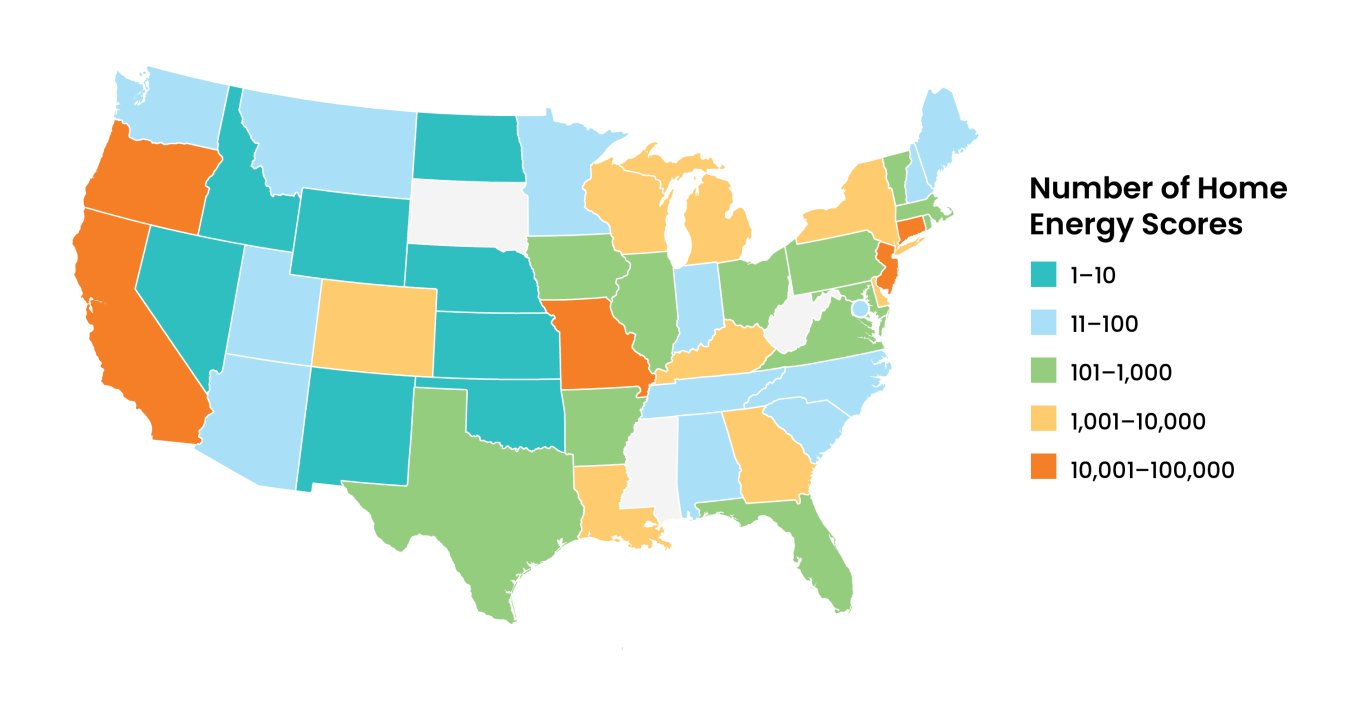In August 2024, DOE recorded its 250,000th Home Energy Score, which provides an estimate of a home’s energy use on a 1 to 10 scale (least to most efficient) as well as customized recommendations for cost-effective energy improvements.
September 5, 2024In August 2024, the U.S. Department of Energy (DOE) recorded its 250,000th Home Energy Score. Home Energy Score provides an estimate of a home’s energy use on a 1 to 10 scale (least to most efficient) as well as customized recommendations for cost-effective energy improvements. Like a miles-per-gallon rating for a car, the score uses a standard assessment of energy-related assets to compare energy use across a variety of homes. By motivating homeowners, buyers, and sellers to improve home energy performance and share home energy information, the score is becoming an important part of real estate transactions.
This milestone is made possible by partner organizations and Home Energy Score Certified Assessors™ around the country. DOE’s Home Energy Score program currently works with 27 partner organizations and nearly 400 assessors that provide Home Energy Scores to homeowners, buyers, sellers, and renters.
The growing demand for scores stems partly from communities where state and local governments use the score to meet energy-saving goals. In Oregon, cities like Portland, Milwaukie, Hillsboro, and Bend have passed local ordinances requiring a score in real estate listings. Similarly, Berkeley and Piedmont, California, also have time-of-sale ordinances while other California cities, like Carlsbad and Encinitas, use the score in building codes when major renovations are made. In March 2024, Ann Arbor, Michigan, began requiring a score in real estate listings, becoming the first city in the state to do so.
Other areas producing high volumes of scores include Connecticut and New Jersey, where utilities have integrated the score into services they’re already providing. Utilities and energy-efficiency programs in Colorado, Delaware, Massachusetts, Michigan, Missouri, New York, Oregon, and Wisconsin have also incorporated the Home Energy Score into their residential programs.
For homeowners looking to upgrade their homes, state energy offices are finalizing plans to distribute up to $8.8 billion in home energy rebates from the 2022 Inflation Reduction Act. In some circumstances, homeowners may use a Home Energy Score to qualify for rebates when utility bill data are not available.
DOE launched the Home Energy Score program in 2012 to help build market value for energy-efficient homes.
For more information on the value of a Home Energy Score and other resources, visit the Home Energy Score website.
If you’re looking to become a Home Energy Score partner or assessor, or you’re looking for a partner or assessor, visit the Home Energy Score website.

In August, DOE recorded the 250,000th Home Energy Score. The number of scores varies widely by state: 1–10 scores in each of Idaho, Kansas, Nebraska, New Mexico, North Dakota, Oklahoma, and Wyoming; 11–100 scores in each of Alabama, Arizona, Indiana, Maine, Minnesota, Montana, North Carolina, New Hampshire, South Carolina, Tennessee, Utah, Washington, and the District of Columbia; 101–1,000 scores in each of Arkansas, Florida, Iowa, Illinois, Massachusetts, Maryland, Ohio, Pennsylvania, Rhode Island, Texas, Vermont, and Virginia; 1,001–10,000 scores in each of Colorado, Delaware, Georgia, Kentucky, Louisiana, Michigan, New York, and Wisconsin; 10,001–100,000 scores in each of California, Connecticut, Missouri, New Jersey, and Oregon.

